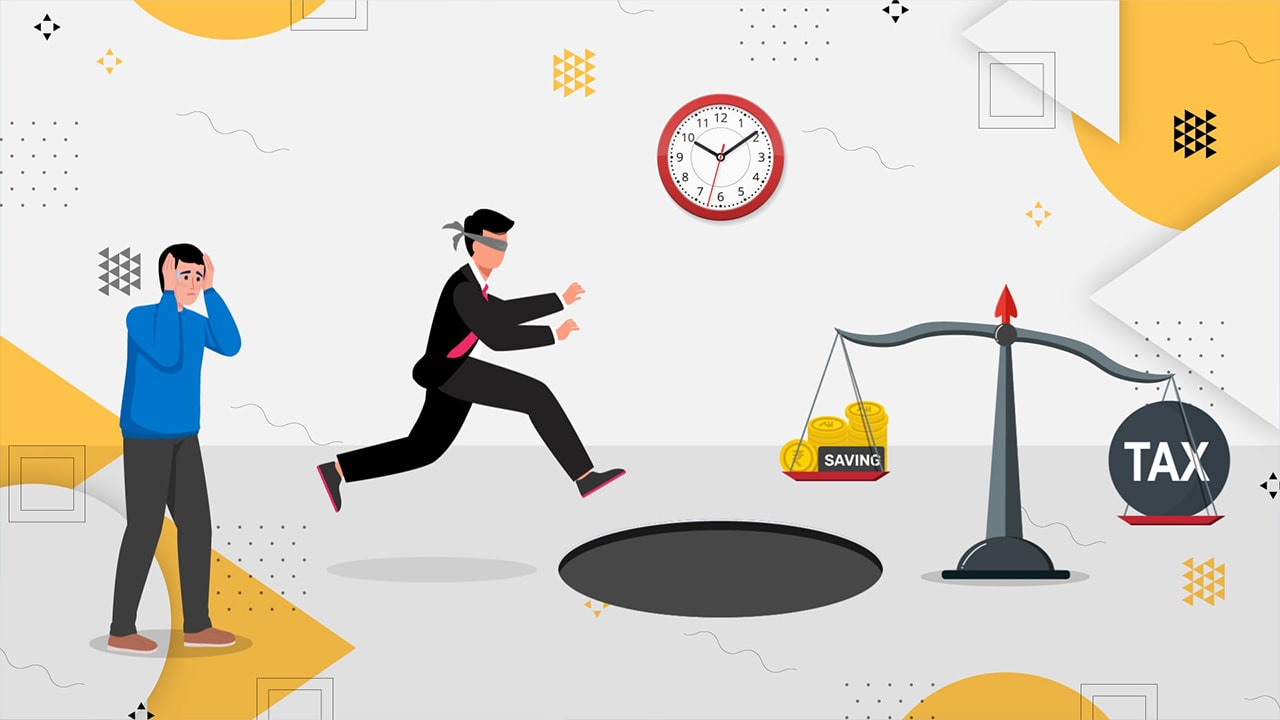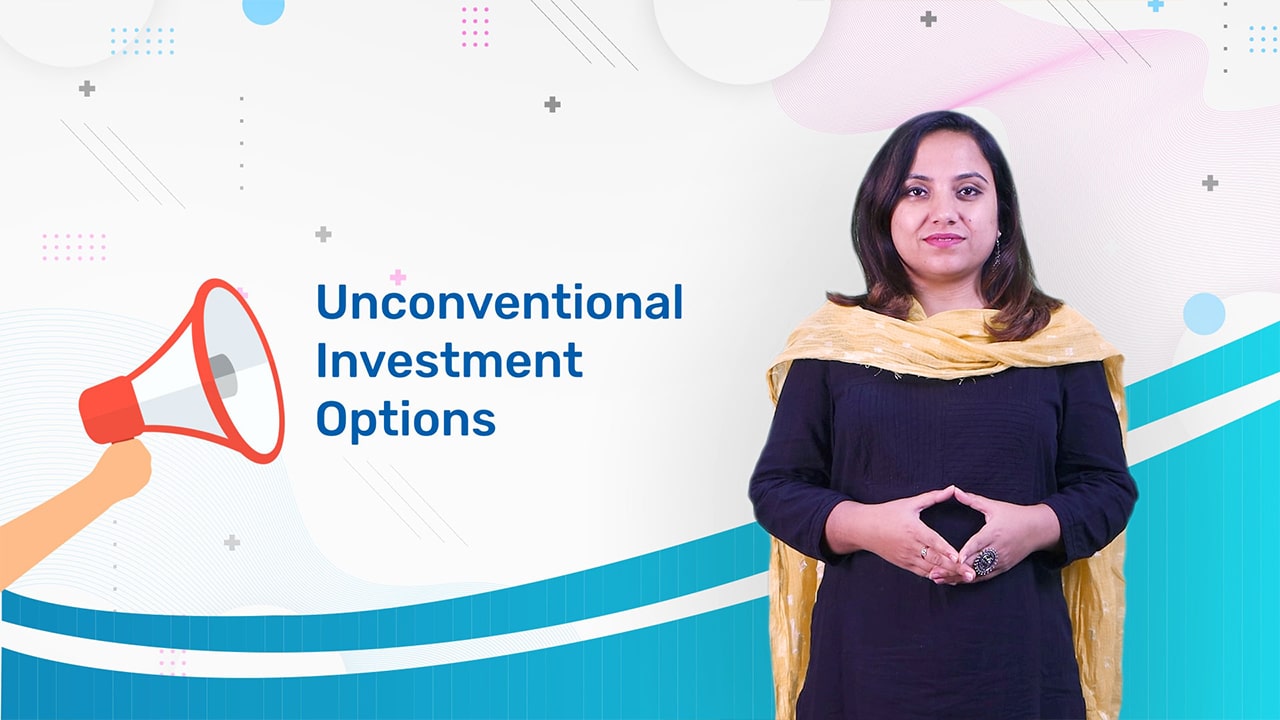Last-Minute Tax Saving Hacks
Episodes

E01: Last-Minute Tax-Saving Investments: Where to Put Your Money
03 mins
Is the tax deadline approaching? Are you looking for last-minute ways to save? In this video, we will explore some tax-saving investment options to help ease your tax burden! First, we’ll go over some market-linked investments like the Equity Linked Savings Scheme (ELSS). It offers tax benefits under Section 80C and has a shorter lock-in period of three years. Next, we’ll learn about the options for risk-averse investors, like the Public Provident Fund (PPF). It offers guaranteed returns and has a 15-year lock-in. Next, you will learn about the National Pension Scheme (NPS) and how it could help in retirement planning and tax benefits under Section 80CCD(1B). But remember, NPS has a longer lock-in and requires you to buy an annuity on maturity. We’ll also cover the basics of Unit-Linked Insurance Plans (ULIPs). These provide dual benefits of insurance and investment, along with returns under Section 80C. If you are looking for more stable options, this video will also take you through Tax-saving Fixed Deposits and National Saving Certificates (NCS). These have relatively lower risk and come with a five-year lock-in period. Remember to consider your financial goals, risk tolerance, and liquidity needs before investing. In this way the right choices could help you save more by the end of the financial year!

E02: Common Tax-Saving Mistakes To Avoid Before The Financial Year Ends
03 mins
As the financial year wraps up, rushing to file taxes can lead to common yet avoidable mistakes. In this video, we’ll discuss some such common tax-filing mistakes and share insights on avoiding them. First, let’s talk about documentation. Many miss out on deductions simply because they lack organized records. Make sure you keep all receipts, invoices, and statements related to income and expenses handy. By doing this, you’ll ensure every eligible deduction is claimed and save time when filing. We’ll also explore the importance of making informed investment choices. In a rush to save taxes, some taxpayers make last-minute investments that don’t align with their financial goals. Avoid rushed decisions by planning early, considering factors like risk tolerance, liquidity, and long-term objectives. Compliance is another area we’ll go over, as overlooking tax laws can lead to penalties. Missing filing deadlines or providing incorrect information may cost you. You will also learn about the importance of staying informed about the latest tax regulations and accurate tax-filing. In summary, careful planning and attention to detail can help you maximize savings while reducing stress. Keeping organized records, making strategic investments, and staying compliant will lead to a smoother tax season. Remember, a proactive approach makes all the difference.

E03: Calculating the Optimal Investment Amount for Tax Savings
03 mins
Making informed investment decisions is crucial for wealth growth and tax savings. In this video, we’ll explore how to determine the right investment amount to maximise your tax benefits. We will focus on factors like income, financial goals, and risk tolerance. To begin, you should assess your annual income. Remember that the eligibility limits vary for tax-saving investments. For instance, Section 80C allows deductions up to ₹1.5 Lakhs, but if your income is higher, you may need additional options. So, we’ll take you through the concepts of Section 80D for health insurance or Section 24 for home loan interest. You will also understand how to align your investments with your financial goals to structure your tax-saving strategy. These might include saving for a home or retirement. By selecting investments with lock-in periods that match your goals, you can plan better for the future. Next, you’ll learn about assessing your risk tolerance to find the right mix. For example, an Equity Linked Saving Scheme (ELSS) may suit those comfortable with market risk, while the Public Provident Fund (PPF) could offer more stable returns for conservative investors. Optimising investments for tax savings means aligning them with your income and goals while managing risk. Lastly, staying informed on tax rules and consulting an advisor can further tailor your plan.

E04: Real Estate Rescues: Last-Minute Tax Benefits in Property Investments
03 mins
Welcome to another video of last-minute tax-saving hacks for the end of the financial year! Here, we’ll explore some eleventh-hour strategies to optimise tax savings through real estate investments. To start, we’ll discuss some key benefits like property depreciation, that are often overlooked. This allows building owners to claim deductions on the structure's depreciation value, thus reducing taxable income. Here, you’ll learn about how assessing and claiming this value before year-end can make a significant difference. Another key tax-saving strategy that this video explores is home loan interest deductions under Section 24(b). It is essential to review and optimise these payments for tax savings. Those with co-owned properties can understand how each co-owner can claim separate deductions. This could be a valuable approach for couples or family members with joint property ownership. We will also discuss capital gains tax exemptions available through Sections 54 and 54F. These could allow taxpayers to offset gains by reinvesting in other properties or specified bonds within a set timeframe. Hence, proper planning around such real-estate deductions and exemptions could greatly reduce your tax liabilities. Don’t forget to consult a tax professional for guidance on maximising these benefits. As always, stay tuned for more insights on financial planning.

E05: Last Minute Charitable Contributions Give Back and Save on Taxes
03 mins
Want to explore last-minute charitable contributions for both altruism and tax benefits? In this video, we're diving into how to explore these contributions as the financial year-end approaches. We’ll look at how charitable donations could be a strategic way to save on taxes. Here, you’ll learn about eligible contributions that qualify for deductions under Section 80G of the Income Tax Act in India. These include donations to impactful organisations like CRY. It supports underprivileged children's rights and offers a 50% tax exemption on donations. Another option is the Akshaya Patra Foundation. It is dedicated to fighting hunger and promoting education through mid-day meals. Here also, your donations are eligible for a 50% tax deduction. You’ll also find out about the Prime Minister's National Relief Fund (PMNRF). This aids families affected by natural disasters and qualifies for tax benefits. The video will also walk you through key tips and suggestions you need to keep in mind when claiming these benefits. For example, it’s essential to secure receipts and certificates for your donations. Depending on the organisation, tax deductions can reach 50% or even 100% of the donation amount. So, make the most of this financial year-end— keep supporting worthy causes and be financially smart with your taxes.

E06: Health is Wealth Last Minute Tax Benefits on Medical Expenses
03 mins
Medical expenses could sometimes take a toll on our finances. But what if you could claim tax benefits on these expenditures? In this video, we’ll explore how health-related expenses can help you save on taxes at the end of a financial year. Join us as we walk you through various sections of the Indian Income Tax Act that could provide valuable tax benefits to ease this impact. For example, Section 80D allows deductions for health insurance premiums paid for yourself, your spouse, children, and parents. For individuals under 60, the deduction limit is ₹25,000, and if covering senior citizen parents, this extends to ₹50,000. We’ll also explore Section 80DD, which covers deductions for the treatment and rehabilitation of dependents with disabilities, with maximums of ₹75,000 (or ₹1,25,000 for severe disabilities). Next, you’ll understand the nuances of Section 80DDB. This applies to treatment expenses for specific diseases such as cancer and chronic renal failure, with a maximum deduction of ₹40,000 (₹1,00,000 for senior citizens). Lastly, we'll also discuss ways to optimise these tax benefits. Common steps include regular health check-ups, maintaining documentation of medical expenses, etc. By planning your health expenses, you can secure your financial and physical well-being. Stay tuned for more insights on financial wellness!

E07: Niche Investments for Swift Tax Gains Beyond the Conventional Choices
03 mins
Tax planning can feel overwhelming, but don't worry! We've got some fun and unique investment options that could help you boost your tax savings. Let’s explore them together in this video. First, we will discuss Agricultural Bonds, issued by NABARD. These bonds not only support agriculture but also offer tax exemptions under Section 80CCF. We will also cover Real Estate Investment Trusts (REITs), which could provide a way to invest in real estate minus the management hassles. They offer tax-free dividends and help in diversifying your portfolio. Another interesting option that you’ll learn about is Sovereign Gold Bonds (SGBs). These allow gold investment with tax-exempt capital gains at maturity. If you’re open to a bit of risk, Peer-to-Peer (P2P) lending might interest you. Though taxable, the high potential returns could offer an edge for adventurous investors. For those focused on sustainability, the video will explore Environmental, Social, and Governance (ESG) funds that support ethical companies. We’ll also go over art and collectibles. When held for over two years, you could enjoy a unique, passion-driven way to save on taxes. While these investments present unique opportunities, always consider your risk tolerance and consult a financial advisor. Stay tuned for more insights on building a tax-efficient portfolio!
What to Watch Next
All


























